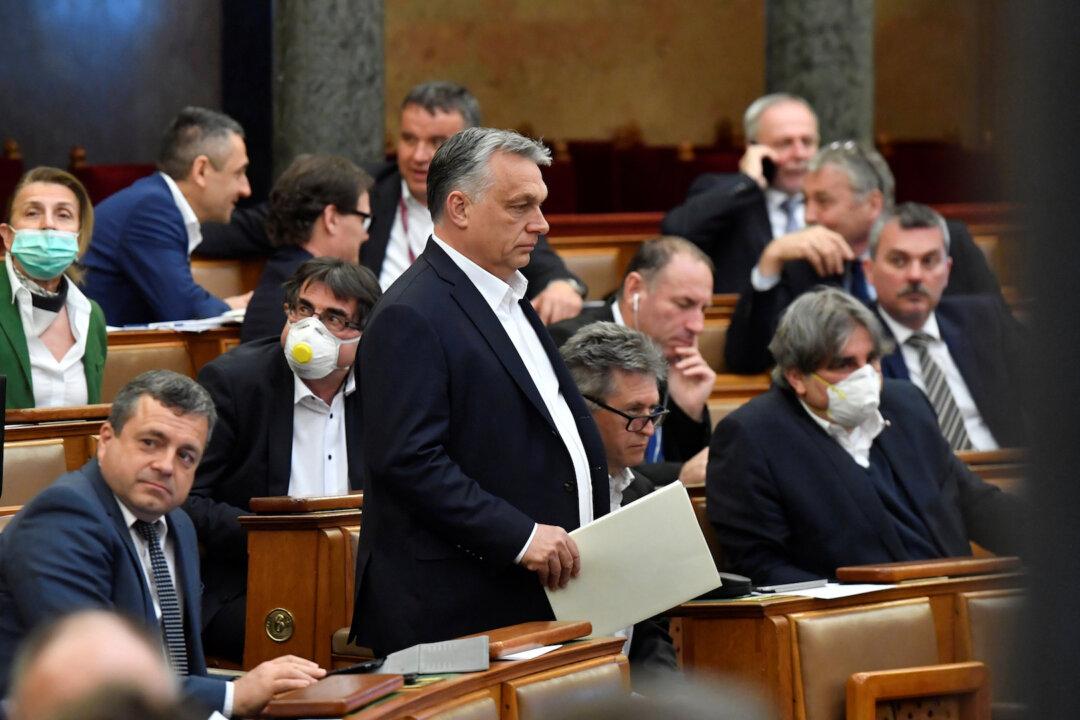BUDAPEST—Hungary’s parliament granted nationalist Prime Minister Viktor Orban the right to rule by decree on Monday to fight the CCP Virus, commonly known as novel coronavirus, ignoring calls by opponents and rights groups to put a timeframe on the extra powers.
President Janos Ader, an Orban ally, signed the legislation extending a state of emergency after it was approved by parliament, dominated by Orban’s Fidesz party. Ader said it was in line with international treaties and Hungary’s constitution.





